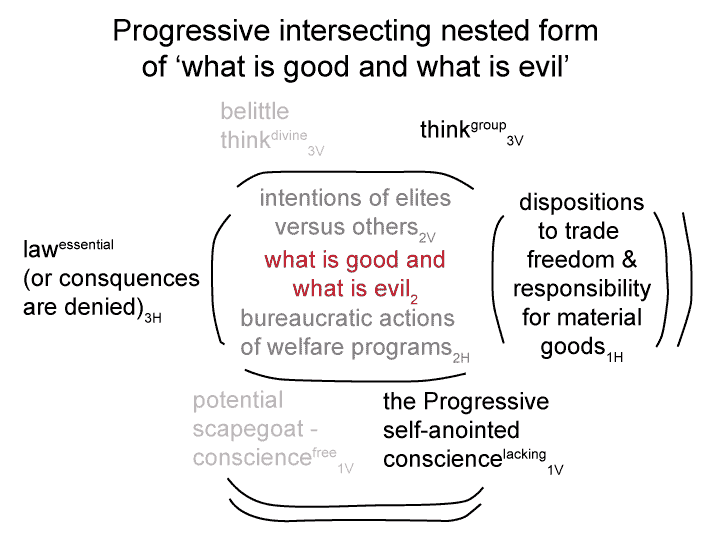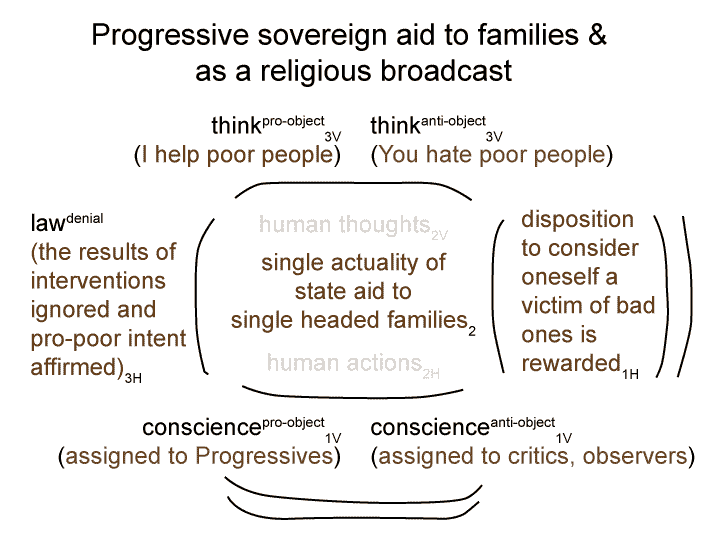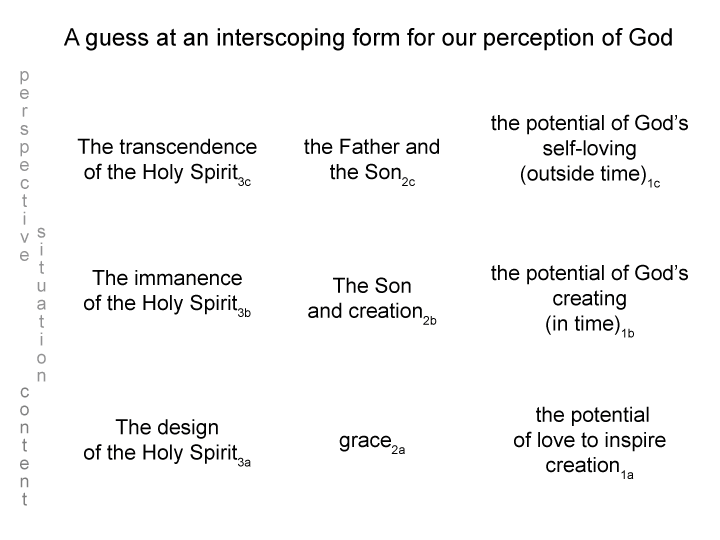Man and Sin by Piet Schoonenberg (1964) 2.2 CS-3
[The content-level nested form depicted in these two blogs is:
‘Sovereign self-empowerment3a’ brings the actuality that ‘programs of the Progressive religion are good’ and ‘the rational observations of detractors is bad’2a into relation with the possibilities inherent in the feelings of the citizens (such as the feeling of entitlement or disbelief) and of the authorities (such as feelings of strength and superiority)1a.
The above actuality is ‘an intersection of human intention and human action’.
The vertical nested form (of human intention) is:
ThinkProgressive3V brings the intentions of the bureaucratic elites2V into relation with the potential of the Progressive’s self-anointed conscience1V.
The alternates (of thinkdivine and consciencefree) are placed under suspicion and threat.
The horizontal nested form (of human action) is:
Explaining away the consequences3H brings the bureaucratic actions of welfare programs2H into relation with the potential of dispositions to trade freedom & responsibility for material benefits1H.]



